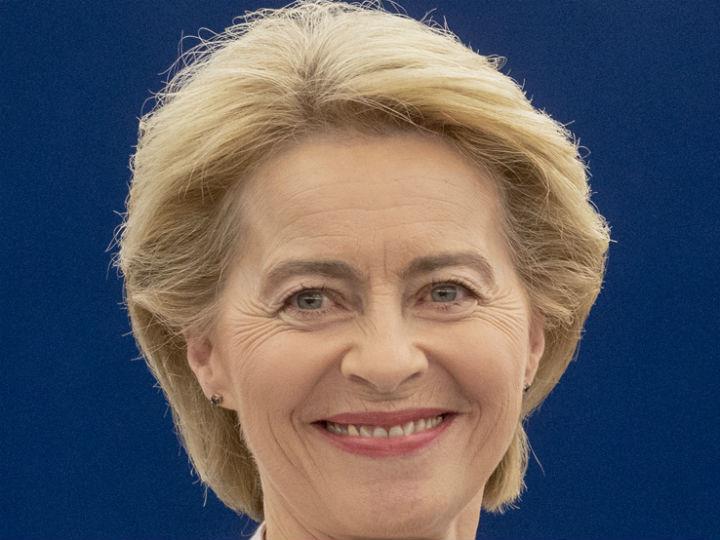by Raluca Csernatoni*
The incoming European Commission has big plans for defense.
So big and ambitious that, in trying to shape a coherent EU defense and security policy, they challenge the role that member states have traditionally played.
They also raise questions about how accountability and transparency, both of which are necessary for public legitimacy and support, can be reconciled with national defense policies and military spending—areas that are traditionally closely tied to lobbies and weapons’ manufacturers.
These are some of the big issues that incoming European Commission President Ursula von der Leyen and her team will have to tackle if the EU is serious about making defense more integrated.
The EU has always punched below its weight when it comes to defense; a former Belgian foreign minister once (in)famously said that “Europe is an economic giant, a political dwarf, and a military worm.”
Certainly, there has been a plethora of recent initiatives such as the revived Permanent Structured Cooperation (PESCO), the European Defense Fund (EDF), and the establishment of a new Directorate General for Defense Industry and Space. The latter marks a political signal that the EU and the commission should have increased competences in this domain. Both the EDF and the new directorate general introduce innovative changes to a fragmented and complex policy area such as defense, where intergovernmentalism is still dominant and supranational governance has traditionally been limited.
All these initiatives are expected to upscale the European level of ambition in defense at a time when the EU institutions and member states are talking about increasing Europe’s strategic autonomy and sovereignty across different domains.
“We have to work on our technological sovereignty,” said Thierry Breton, the French commissioner-designate for the new directorate general, when he was questioned by the European Parliament on November 14. So far, such catchy slogans lack substance and realism.
But if the EDF is successfully implemented—and it’s a big if—it is expected to boost the commission’s agenda-setting power in the field of defense, for example by supporting lucrative joint investment schemes in cutting-edge military technologies and their research and innovation.
The EDF is not a defense policy per se, but a research and technological-industrial policy. Still, with its expected budget of €13 billion for 2021-2027 it symbolizes an unprecedented development of EU governance on the supranational level: it makes defense industrial cooperation under the EU budget a reality. Spending EU money (meaning tax payers’ money) on defense capabilities and their development is no longer taboo.
The expected main beneficiaries of the defense fund are member states with strong national defense industries and the financial means to co-finance costly military capability projects.
Because France is such a major defense player, and because the new directorate general will be led by a Frenchman for the next five years, Paris seems to be the biggest winner from this new-found EU interest in defense. This raises concerns from several member states about France’s potential influence over EU defense policy.
As if to reassure those who fear the EU may be undermining national prerogatives in defense or becoming a competitor to NATO, the outgoing commissioner for the internal market, Elzbieta Bienkowska, insisted the commission “is not making a power grab for defense policy or creating an EU army.”
Yet there is a more fundamental point to be made: the commission’s increased power in defense-related issues raises questions about the transparency and scrutiny of how decisions are reached. If the EU proceeds with further political integration in such a sensitive field as defense, the big democracy question is inevitable.
Indeed, civil society and activists have already criticized the way decisions on EU defense policy are made behind closed doors. True, decisions on defense have to be expert-driven—but there is a need for transparency, legitimacy, and public debate about these kinds of integration processes.
Proposed EU investments on defense also require new forms of checks and balances, oversight mechanisms, and the meaningful participation of EU citizens in decisionmaking.
So far, however, the EU’s goals and interests in defense are progressively converging and being shaped by those inside the European defense industry.
Powerful industry-driven lobbying has always played a signi?cant role in setting priorities in defense research and development. But currently, there is a growing sense of a corporate capture, compounded by unaccountable and often invisible forces that directly or indirectly influence the EU’s policymaking on defense.
Transparency and legitimacy are dimensions of the accelerating EU defense integration that enjoy limited public debate, namely of whether defense initiatives are democratically accountable and subjected to meaningful parliamentary scrutiny and oversight—either on the European or on the national level.
The reality is that embarking on deeper integration in such a highly sensitive area as defense, without putting in place new mechanisms for democratic participation, is highly problematic and could backfire. It could lead to an EU legitimacy crisis-in-the-making.
Unless von der Leyen matches geopolitical ambition with accountability and transparency.
*visiting researcher at Carnegie Europe, where she works on European security and defense with a specific focus on disruptive technologies
**first published in: carnegieeurope.eu




 By: N. Peter Kramer
By: N. Peter Kramer
